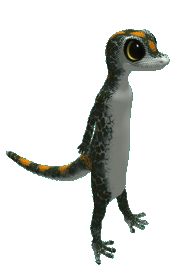Hi Fellow Geekos,
This post is a summary of my wish to continue to serve on your behalf on the openSUSE board.
My term has been a short one, as I was appointed to serve out the remainder of Vincent Untz’ term.
While I now work for SUSE (and it has been a fabulous experience), that does not change my view or efforts to contribute to openSUSE. Prior to joining SUSE, as a part of the Sales Engineering team, I was elected to the board for a two year term. To avoid having too many SUSE employees, I had to step down. A rule I completely support.
Having been an openSUSE member long before joining SUSE, I think I have a keen awareness of what the community is about and where we can improve together.
My take is we have an awesome group of contributors who want to see the community grow and prosper. With things like Tumbleweed and OBS, among others, we have shown real innovation and technical leadership in the Linux world. We have arguably one the top distros available. It is solid, polished and usable for a wide variety of use cases. We need to keep the openness and solid collaboration which enables everyone to participate and succeed.
My efforts within openSUSE have been mostly focused on the Open Build Server, maintaining several projects, as well as, being part of the Factory review team.
Going forward, I want to concentrate on reaching out beyond our community to build more awareness of what an awesome distro we have, along with a pretty friendly community. I see other, less compelling, distros getting more visibility than perhaps is deserved.
Along the same lines, my take is we as a community can take a more active role in bringing in new members, who might not be technical folks, but can help in the marketing and outreach. I’ve started a local SUSE group through meetup.com which is a different way to find new users and contributors.
One other reason I wish to remain on the board, is we have a solid working relationship and there is a lot of mutual respect and good collaboration.
No matter who is elected to the board, I am very pleased with the caliber of the folks running and know the community will be in good hands moving forward.
Thank you in advance for your vote!
Peter Linnell


